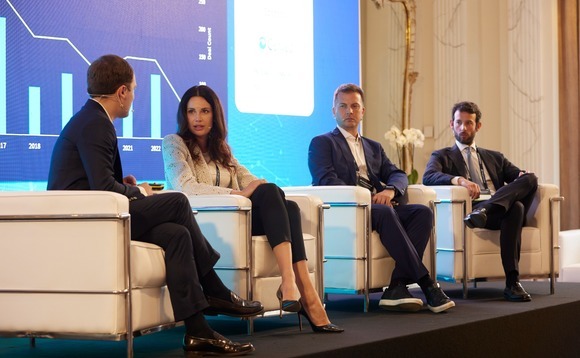
It's a new generation: Emerging PE professionals are propelling their careers with ESG – PE Forum Italy

The next generation of private equity (PE) professionals is uniquely positioned to build a different dialogue with young management teams and to make ESG considerations a significant component of how deals are struck and investments managed, delegates told Mergermarket’s Private Equity Forum Italy 2023.
PE, more than other business sectors, can allow entrepreneurial juniors to take the initiative and accelerate their careers by building trusted partnerships with young CEOs at portfolio companies, they explained.
This provides them with a chance to stand out, they said.
In PE, a young professional can often find themselves in a leadership role as a board member that would normally be covered by more experienced managers in the corporate world. These professionals should quickly cultivate a solid grasp of the sector where their portfolio companies operate, both in due diligence and in the lifecycle of the investment.
"Especially as a younger professional, it is a way to bridge a generational gap by interfacing with a management team that is often of a different generation," said Carlyle associate director Dalila Dolci.
"Especially in the context of inorganic growth, if you know your company inside out you can bring M&A opportunities that might go beyond what management had considered until then, and that can really accelerate growth," Dolci said.
This ability to spot opportunities and find a voice at the table in spite of the generational gap should be fostered by a culture "where juniors are not scared to expose themselves," said NB Renaissance principal Giovanni Camisassi.
"Little mistakes should be forgiven and seen as opportunities to grow. Young professionals need to be intellectually curious and should not fear to challenge the status quo," he noted, adding that risks should always be based on a foundation of competence, being ready to propose solutions and alternatives.
Intesa Sanpaolo's Head of Financial Sponsor Italy Luca Lisco noted that PE is often a more "meritocratic sector" than others, where performance is measurable by the return on investments. This means that even mid-level professionals with enough ambition can find opportunities to stand out. "In other fields, the environment is more static, but PE incentivises entrepreneurialism," he said.
The new language (and power) of ESG
Young CEOs of startups and fast-growth companies in particular are more alive than ever to the relevance of ESG, not just as a compliance framework but as a building block for a more sustainable corporate development, they said.
Carlyle's Dolci said that ESG is now recognised less as a liability avoidance tool and more as a value creation instrument. When Carlyle bought protective equipment and technical gear manufacturer Dainese from Investcorp, it managed to obtain favourable debt conditions with interest repayments that could be reduced on the basis of ESG objectives, she noted. "The targets had been presented clearly and in a well-articulated way," Dolci said.
In one of its portfolio companies, Golden Goose, Carlyle helped steer the bolt-on of a sustainable sneaker manufacturer to bring these competences in-house and strengthen product development skills in this area, she added.
More than ever, these competences are being developed within sponsors' ranks. NB Renaissance's Camisassi said that his firm adopted an "integrated approach" to ESG whereby it brought in an industry professionals to strategise with portfolio companies around environmental and circular economy issues, which helped maintain a good relationship with management teams that were demographically more open to these themes and, by contrast, made resistant executives more aware of them.
ESG plans are also reviewed constantly, he said, citing examples including agricultural chemicals producer Sicit, where a continued reaction to new market stimuli is required, he said.
Lisco agreed that, while ESG was seen as future-oriented or even a marketing tool until five years ago, nowadays it has become instead a fundamental element of investment making and bank analyses.
Where the next generation of ESG professionals can really leave their mark will be dependent on making these aspects a workstream on a daily basis, ensuring that the issue is embedded in every facet of the organisation, especially in portfolio companies with big headcounts.
"We can bring about change not only in single projects but also in a wider cultural way," Camisassi said. "Investment teams need to show this is important for all functions."
By Cristiano Dalla Bona
Latest News
Stonehage Fleming raises USD 130m for largest fund to date, eyes 2024 programme
Sponsor acquired the public software group in July 2017 via the same-year vintage Partners Group Global Value 2017
Stonehage Fleming raises USD 130m for largest fund to date, eyes 2024 programme
Czech Republic-headquartered family office is targeting DACH and CEE region deals
Stonehage Fleming raises USD 130m for largest fund to date, eyes 2024 programme
Ex-Rocket Internet leader Bettina Curtze joins Swiss VC firm as partner and CFO
Stonehage Fleming raises USD 130m for largest fund to date, eyes 2024 programme
Estonia-registered VC could bolster LP base with fresh capital from funds-of-funds or pension funds








